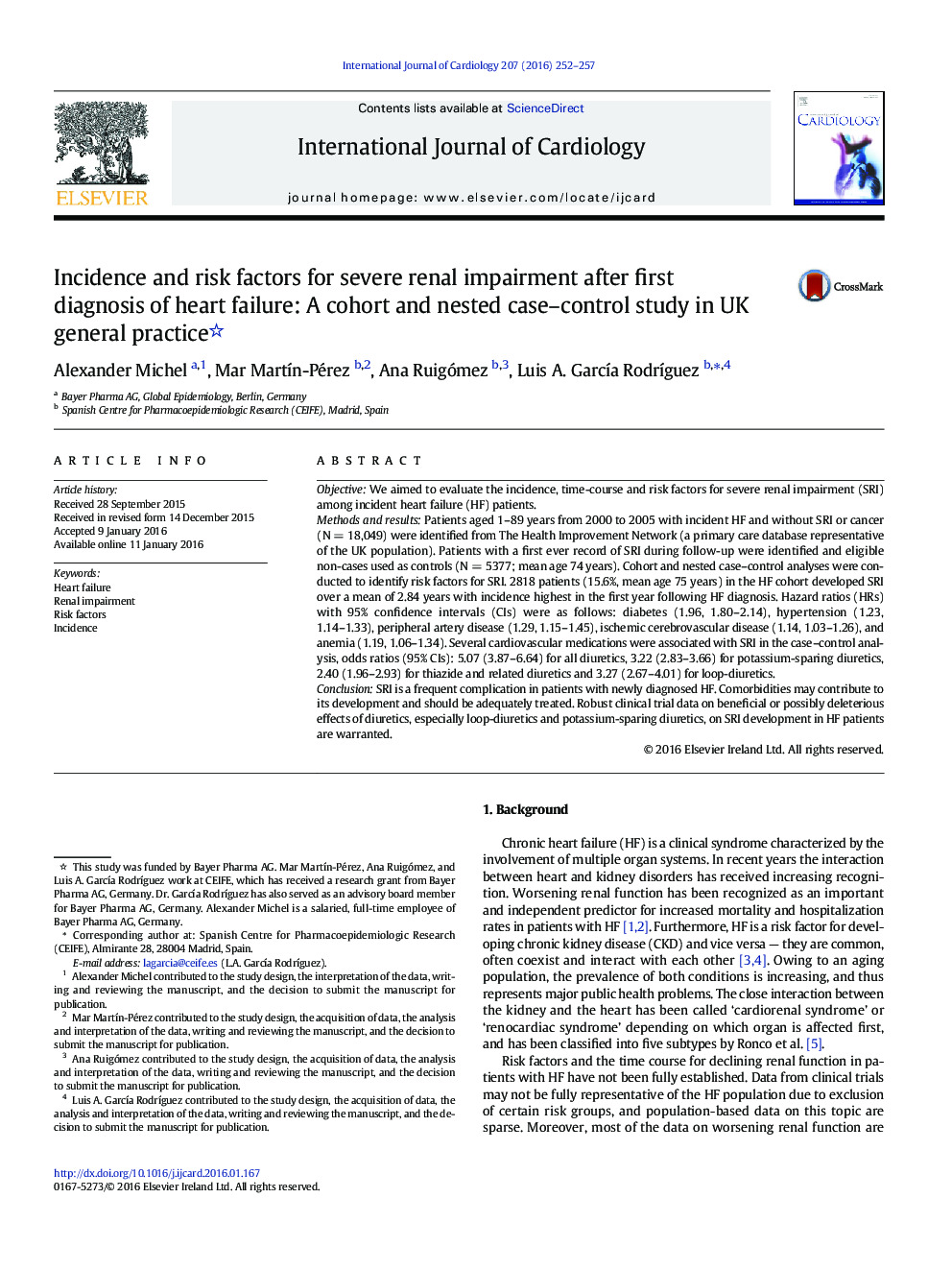| کد مقاله | کد نشریه | سال انتشار | مقاله انگلیسی | نسخه تمام متن |
|---|---|---|---|---|
| 5964862 | 1576143 | 2016 | 6 صفحه PDF | دانلود رایگان |
- Risk factors for SRI in a large inception cohort of HF patients were identified.
- Diabetes, hypertension, anemia and hypothyroidism may all play a role in SRI.
- These comorbidities should be adequately treated.
- Protective or deleterious effects of diuretics on SRI development are unclear.
- Robust clinical trial data are needed to evaluate the effect of diuretics on SRI.
ObjectiveWe aimed to evaluate the incidence, time-course and risk factors for severe renal impairment (SRI) among incident heart failure (HF) patients.Methods and resultsPatients aged 1-89Â years from 2000 to 2005 with incident HF and without SRI or cancer (NÂ =Â 18,049) were identified from The Health Improvement Network (a primary care database representative of the UK population). Patients with a first ever record of SRI during follow-up were identified and eligible non-cases used as controls (NÂ =Â 5377; mean age 74Â years). Cohort and nested case-control analyses were conducted to identify risk factors for SRI. 2818 patients (15.6%, mean age 75Â years) in the HF cohort developed SRI over a mean of 2.84Â years with incidence highest in the first year following HF diagnosis. Hazard ratios (HRs) with 95% confidence intervals (CIs) were as follows: diabetes (1.96, 1.80-2.14), hypertension (1.23, 1.14-1.33), peripheral artery disease (1.29, 1.15-1.45), ischemic cerebrovascular disease (1.14, 1.03-1.26), and anemia (1.19, 1.06-1.34). Several cardiovascular medications were associated with SRI in the case-control analysis, odds ratios (95% CIs): 5.07 (3.87-6.64) for all diuretics, 3.22 (2.83-3.66) for potassium-sparing diuretics, 2.40 (1.96-2.93) for thiazide and related diuretics and 3.27 (2.67-4.01) for loop-diuretics.ConclusionSRI is a frequent complication in patients with newly diagnosed HF. Comorbidities may contribute to its development and should be adequately treated. Robust clinical trial data on beneficial or possibly deleterious effects of diuretics, especially loop-diuretics and potassium-sparing diuretics, on SRI development in HF patients are warranted.
Journal: International Journal of Cardiology - Volume 207, 15 March 2016, Pages 252-257
